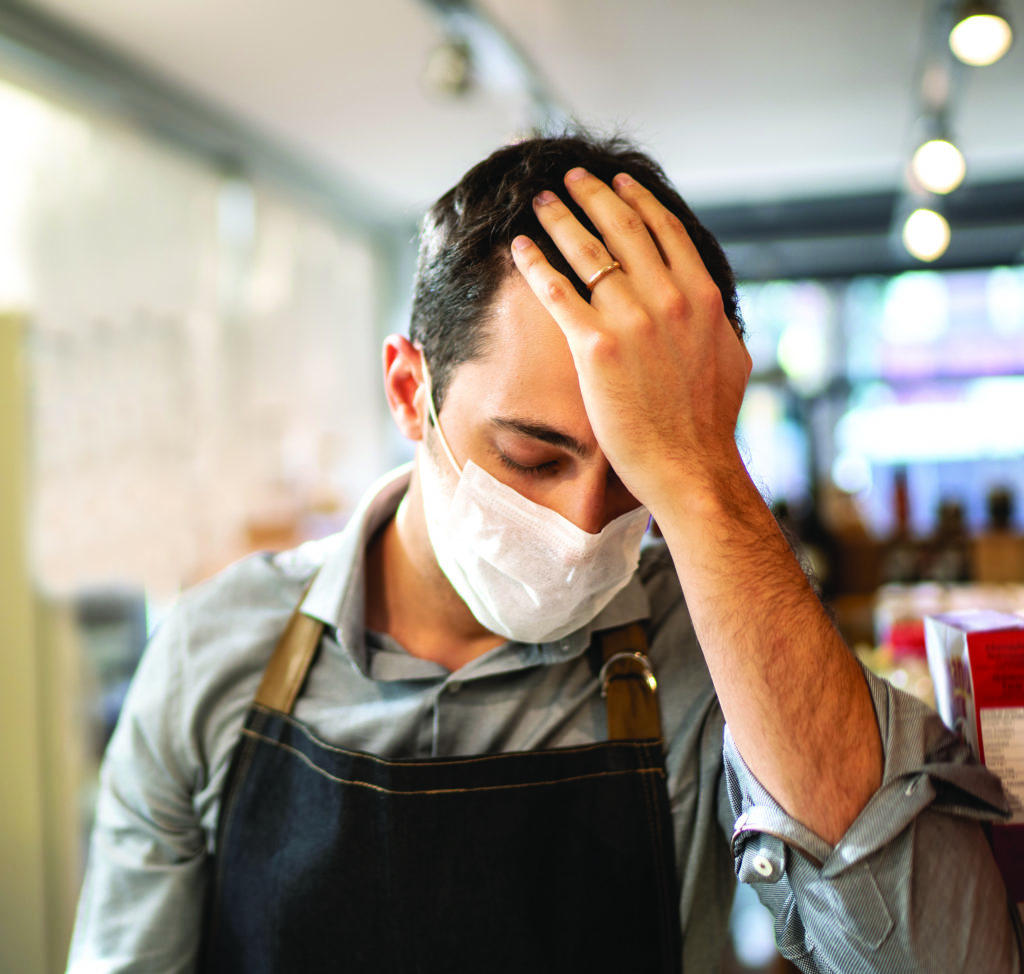If so, here is a step-by-step process to help you get back on track

Ever feel that stress is too much to bear? Has the pandemic made you feel even worse than you did before? Well, you are not alone.
According to The American Psychological Association’s Stress in America report, U.S. adults have experienced an average stress level of 5.9 out of 10, due to the pandemic. In the survey, U.S. adults experienced a general stress rate of 5.4, compared to the 2019 Stress in America survey, which found U.S. adults experiencing a general stress rate of 4.9.

Theresa Rauh-Hoell, who is a certified expert in the field of stress management, said the first step in stress management is to recognize that you may have symptoms of stress.
“It’s just a matter of recognizing when our anxiety is within a normal range or when maybe certain circumstances trigger our anxiety to maybe overreact and we have to manage that,” she said. “There’s a part of it that comes from within; you have to know yourself. If you don’t know yourself and you’re just feeling overwhelmed by it that’s when I would say that maybe going to therapy [is good], so you can have a better understanding of your process and your experience with anxiety so that you can manage it.”
The American Psychological Association’s Stress in America report cited 67 percent of parents are stressed due to self-isolating. Rauh-Hoell said people should stray away from being alone during this time as it can lead to an increase in stress.
“I feel like what COVID-19 did, is brought on a lot of isolation,” she said. “Human beings are social. We need people. We need to be around people. Even when we hate them and wish we were in a lake house alone somewhere, we need people. This isolation and not seeing other people or only the people in our household is not good for us. With technology right now, we have so many more options available to us to be somewhat social. Different apps that we can connect and see people and family and friends that we haven’t been able to see, and that recharges us in a way that we don’t even realize until we’ve done it.”
Staying healthy is another step that people can do, even at home, to help manage their stress. Rauh-Hoell said exercise and nutrition are keys to living a life that is less stressful.
“Everybody can exercise at home right now,” she said. “Nobody wants to admit it, but you can. We can all do push-ups and crunches. Take walks safely with a mask, so there are things. Yoga’s great. If you’re drinking Starbucks all day, you’re going to be gyrating and anxious about everything. Also, chocolate and sugars are going to mess you up. Monster drinks too. All that is awful. We have to be aware of what we are putting into our bodies.”
Rauh-Hoell said recreational activities are becoming popular as the pandemic has limited activities that can be done outside the home.
“More and more people are telling me that they are doing puzzles, having game nights with their families and actually having conversations instead of plopping on a couch and zoning out, which is what people were doing before COVID-19,” she said. “I see more and more people outside playing and on bikes and walks than I have seen in years.”
The American Psychological Association’s Stress in America report cited parental stress for those with children under the age of 18 is 6.7. The report also said that 55 percent of parents feel that their child has been acting out since the pandemic.
Rauh-Hoell said it’s important for parents to know the stress signs in their children.
“Usually a kid that’s stressed out is going to tell you that their belly hurts more often than not,” she said. “They don’t even understand what stress is. As a parent, you have to know your child and you have to recognize that too. Maybe it isn’t that they ate too much or are hungry and that’s what’s bothering them. If they keep reporting that their stomach is bothering them, it’s probably anxiety and stress. They feed off of the adults too. As an adult and as a parent, it’s airplane rules. You have to put the mask on yourself first and then you can help the kids around you. If you’re not in the physically and mentally healthiest place, you’re not going to be able to help anyone else. I think parents should model the behavior of how to take care of yourself because it is a stressful time.”
Breathing is one technique that Rauh-Hoell recommends everyone can do to manage their stressors. She said stress is both a physical condition as much as it is a mental one.
“There’s this natural tendency to tighten up,” she explained. “Our shoulders just go right to our ears. That’s why stress causes so many physical issues, muscle spasms, tension in our neck, upper back and our lower back. It manifests physically if we don’t get a hold of it mentally. Take nice, deep breaths. You can do that anywhere. Doing that for a few minutes is very helpful.”
For those who have not addressed their stress concerns to a professional, Rauh-Hoell gave some advice.
“Just like anything else, the unknown is scary to anybody,” she said. “It’s something new. It’s okay not wanting to do it and not being 100 percent comfortable. That’s also part of life. We have to go to a doctor, we have to take care of ourselves, eat well, we have to exercise, we have to do things to keep us healthy and that sometimes isn’t fun. Anything that we’ve not done before would be scary. That’s normal. It’s okay to be scared. That’s when you grow the most.”
Theresa Rauh-Hoell is a licensed clinical social worker with a certification in alcohol and substance abuse counseling. She owns and operates the private practice Island Counseling in Levittown. To learn more about the services she provides, visit www.island-counseling.org.

































